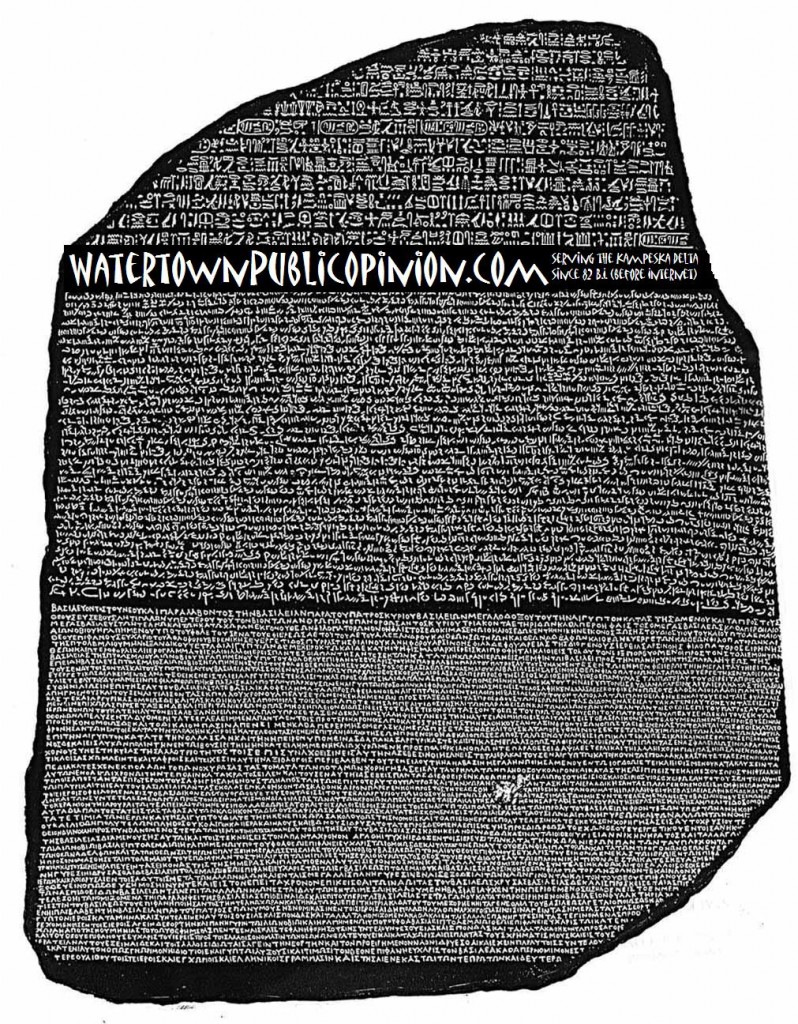
Local newspapers dread the prospect of allowing school boards, county commissions, and other public entities to post their official notices and meeting minutes online. The Madison Daily Leader makes a few dollars every time it posts the occasional election announcement or meeting recap for the Lake Herman Sanitary District. The paper draws more regular revenue from the Madison City Commission, Lake County Commission, and Madison Central school board notices.
The Watertown Public Opinion chimes in to defend its business model with a straw-man argument against cheaper, faster, more easily accessible online posting of official documents. The WPO editorial board cites the ability to change online materials. Then it argues that we can't let government switch to online notices, because the Internet doesn't last like paper:
Another problem with online posting is something called "link rot." This is a phrase we didn't hear of until a few days ago but is another strong argument for publishing public notices in print rather than online.
The average lifespan of a Web page is 44 days, a statistic often used in discussions of digital preservation. Ironically, though, the source of the statistic is no longer available on the Web. This loss or removal of content at a particular Uniform Resource Locator (URL) over time has a name, "link rot."
...So there it is. Forty-four days vs. forever. It's a pretty simple argument in favor of publishing public notices in newspapers rather than online [editorial, "44 Days vs. Forever," Watertown Public Opinion, 2011.04.04].
This calculation of link rot includes myriad dynamic sites that are not under any requirement to stay permanent. Allow schools and other government bodies to post their notices online, make clear that those notices are now the official, permanent record, and government agencies will have a strong motivation not to monkey with the URLs on that portion of their websites. We could even write link-rot protection into any online publication statute: local governments, you can put your notices online, but you must create and maintain unchanging URLs for those documents. Problem solved.
If government agencies are uniquely bad at maintaining links and servers (and WPO points to studies finding worse link rot among government agencies), the media outlets could step up to help. They could offer Web services to host those public notices online in perpetuity. Such services would also address WPO's other concern about Big Brother revisionism and memory holing: meeting minutes maintain on a special section of the WPO website could be as secure from illegal revision or destruction as the musty old master copies in the basement file cabinet at the newspaper.
I suspect that the first scribe who jotted down Pharaoh's commands on papyrus caught the same flack: "What are you thinking, Kwill-Ho-Tep? That flimsy stuff will rot! Stone tablets last forever!" But no matter how much the masons and chiselers like making money off stone tablets, papyrus and newer technologies help us produce and share information faster and more efficiently. We learn to solve papyrus rot (don't keep your scrolls in the shed by the Nile). Instead of letting themselves be dragged down by obsolescing technology, smart media businesses adapt their business models and serve the community with new, better ways of keeping citizens informed.
